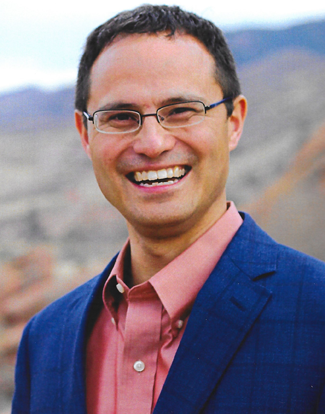Are you experiencing sadness or disappointment this Christmas? That’s okay, because Mary did too. Today, Dr. Sri talks about the meaning of Luke 2, and what this could mean for our prayer and preparation for the Christmas season.
Shownotes
“
“Mary had some disappointment in the midst of great joy. If that was okay for Mary, it’s okay for you and I.”
Shownotes
“
“there was no place for them in the inn.”
You’ve probably heard this line multiple times before, and may have even pictured it in your head: Mary and Joseph frantically searching for a place to have the baby and having to settle with the one place that was open, a barn on a plot of land. But you’ve probably never thought of it the way Pope St. John Paul II explains it. The “them” in this sentence is not referring to Mary and Joseph, but to Mary and Jesus.
Biblical Evidence
To support this we have to look at the nativity narrative in its entirety, and pay close attention to who the subject is at each point in the story. If we look at the beginning of Luke 2:7, we see that Mary is the subject who is doing all the acting: “she gave birth…wrapped him in swaddling cloths, and laid him in a manager.” Mary is the one giving, while Christ is the one receiving all the actions.
It’s at the end of Luke 2:7 that the line, “there was no place for them in the inn” is written, meaning that “them” isn’t referring to Mary and Joseph, but to Mary and Jesus.
Pope St. John Paul II
“The Gospel notes that ‘there was no place for them at the inn’ (Luke 2:7). This statement. Recalling the text in John’s Prologue: ‘His own people received him not’ (John 1:11), foretells as it were the many refusals Jesus will meet during his earthly life. The phrase ‘for them’ joins the Son and the Mother in this rejections and shows how Mary is already associated with her Son’s destiny of suffering and shares his redeeming mission.”
St. JPII recognizes that it’s Jesus and Mary that are turned away at the inn, and further that they could not make any room for Jesus’ arrival into the world. It’s in this way that Mary finds herself at the center of the suffering he’s to experience on earth, and the rejection from his people. We often reflect on the sorrows Mary experienced during the Passion of Christ, but her sorrows began even before he was born, when no one would make even a little room for his arrival. There will be many sorrows of Mary, but the first is experienced in the nativity.
Application to Our Lives
This Christmas is probably unlike any other we’ve experienced before. Families are split up, and there are a lot of things we all wish could happen differently. But in that disappointment and sadness, turn to Mary, and think of her sorrow before the nativity. Even in the midst of the happiest event in history, she still felt sorrow. So this Christmas, ask Mary to pray for you and your heart, and think about ways you can make room for Christ in your life. Help soothe the aches of Mary’s heart by bringing Christ into yours, and rejoice in the birth of your Savior, who can turn your suffering into eternal redemption.
Resources
- Visit Dr. Sri’s website at www.edwardsri.com and to book online events with Dr. Sri email events.edwardsri@gmail.com
- Subscribe to our show by texting “allthingscatholic” to 33-777
- Find more of Dr. Sri’s episodes at ascensionpress.com/allthingscatholic
- Ascension is pleased to offer our new and improved online bible study programs and sacramental preparation programs digitally to help you minister with flexibility. Go to ascensionpress.com to view all our offerings!

Dr. Edward Sri is a theologian, well-known Catholic speaker, and author of several best-selling books. His work with Ascension includes study programs such as A Biblical Walk Through the Mass, No Greater Love: A Biblical Walk Through Christ’s Passion and Mary: A Biblical Walk with the Blessed Mother. Several of Dr. Sri’s programs were filmed on-site in the Holy Land, and feature immersive video explorations of the sacred sites where Jesus, Mary, and the Apostles lived and died.
Dr. Sri is the host of the acclaimed Ascension podcast All Things Catholic with Dr. Edward Sri. Together with Curtis Martin, Dr. Sri is a founding leader of the Fellowship of Catholic University Students (FOCUS), of which he serves as senior vice president of Apostolic Outreach.
Dr. Sri lives with his wife Beth and their children in Colorado.





With all due respect, Dr Sri, I do not understand the basis for your conclusion “It’s at the end of Luke 2:7 that the line, “there was no place for them in the inn” is written, meaning that “them” isn’t referring to Mary and Joseph, but to Mary and Jesus. ”
First, I would think you would have to read 2:7 in the context of 2:4-6. “4 And Joseph also went up to.. the city of David..Bethlehem… 5 to be enrolled with Mary his betrothed, who was with child. 6 And while THEY (Joseph, Mary and the unborn child Jesus) were there, the time came for her to be delivered. 7 And she gave birth to her first-born son and wrapped him in swaddling cloths, and laid him in a manger, because there was no room for THEM (Joseph, Mary and the unborn/born child Jesus) in the inn.” There is no indication that Joseph, as the heavenly-assigned protector of the Holy Family, would not have accompanied them to the cave/stable.
Second, however, you could support your reading to exclude St Joseph from the causal “them” in the “no room for them at the inn” statement if you could show that families were separated, men from women and children, when they traveled and stayed at an inn, and that room was always made for men, but not for women and children. If this were true, then it would be plausible that the causal “them” that there was no room for was limited to Mary and Jesus. However, since the Holy Family is a representation of the Trinity, I think the theological significance would be much more profound. It would foreshadow the rejection of the Jewish religious leaders of Jesus’ Trinitarian revelation of God by accepting only the Father (Joseph), but not his Son (Jesus) or their Holy Spirit (represented by Mary). See https://jewsforjesus.org/publications/issues/issues-v01-n08/a-jewish-view-of-the-trinity-based-on-the-hebrew-scriptures/
Third, Pope JPII includes Mary and Jesus in the “them” of the rejection because he is making a specific point about their relationship. However, he does not specifically address whether St Joseph was also include as one of “them” because it was irrelevant to the point he was making. When you think about it, St Joseph doubly shared in the suffering and rejection JPII raises about this incident: first on the same basis as Mary in relation to their Son; second on the basis of his failure, as their protector, for not being able to find them a place to stay. See https://www.marian.org/news/St-Josephs-Seven-Sorrows-and-Seven-Joys-8332
Fourth, in this first-ever Year of St Joseph, especially during the Advent and Christmas Seasons when he appears most prominently, we should both try to better understand his hidden life as a role-model for our relationships with Jesus and Mary, and implore his intercession as Protector of our families and the Church.